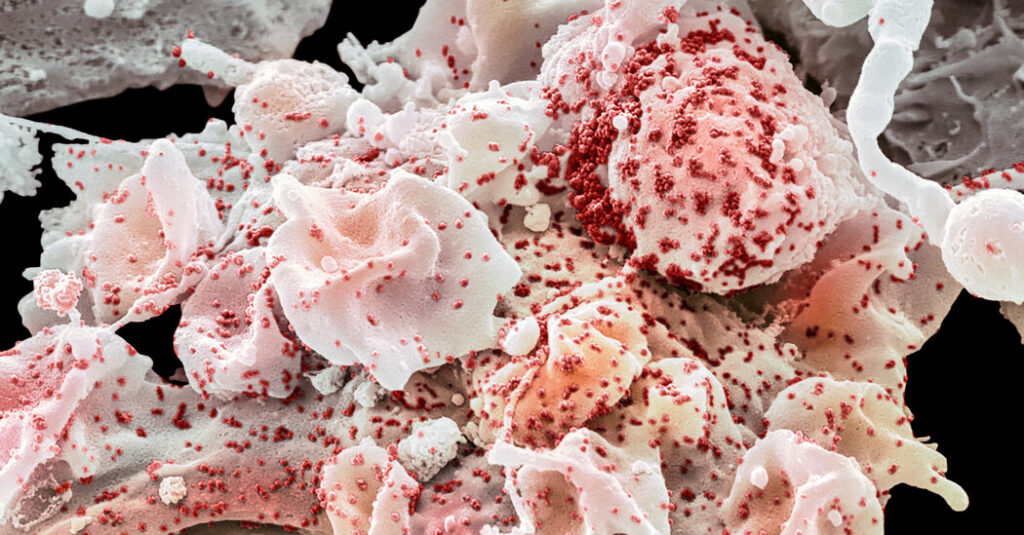
A single subvariant is not gaining all of the new mutations, however. Ben Murrell, a computational biologist at the Karolinska Institute in Stockholm, and his colleagues are tracking more than 180 Omicron subvariants that have independently gained mutations causing them to grow faster than BA.5.
These subvariants are going through a process that Charles Darwin recognized some 160 years ago, called convergence. Darwin noted how birds and bats independently evolved wings that work very much the same way. Today, Omicron subvariants are independently escaping the same antibodies with mutations at the same spots on their spike proteins.
The competition taking place in the subvariant swarm may be preventing one of them from taking over, at least for now. In the United States, the once-dominant BA.5 now accounts for just 19 percent of new cases. Its descendant BQ.1 has risen to 28 percent. And BQ.1.1., a descendant of BQ.1, is the cause of 29 percent. Thirteen other Omicron subvariants make up the rest.
But elsewhere, other subvariants are rising to the top. Singapore, for example, has experienced a surge of XBB, a hybrid of two different subvariants of BA.2. But XBB is rare in most other parts of the world.
“Most of that has just to do with which one seeded an area first,” Thomas Peacock, a virologist at Imperial College London, said.
As each lineage gains more mutations, fewer types of antibodies work against them. Last month, Yunlong Cao, a biochemist at Peking University, and his colleagues reported that XBB and three other subvariants had become entirely resistant to the antibodies in blood samples from people who were vaccinated or had Covid infections.
That development threatens what had been one of the most important defenses against Covid: monoclonal antibodies. To create these treatments, scientists collected blood of Covid patients early in the pandemic, isolated their most potent antibodies, and made vast numbers of copies of the molecules. One formulation, called Evusheld, can prevent people with compromised immune systems from getting infected. But as resistant subvariants become more common, these treatments will no longer work.
You may also like
-
U.S. drug control agency will move to reclassify marijuana in a historic shift, AP sources say
-
Less alcohol, or none at all, is one path to better health
-
Britain's King Charles III will resume public duties next week after cancer treatment, palace says
-
As King Charles announces a return to duties, a look at recent events involving the royals
-
Long flu season winds down in United States

